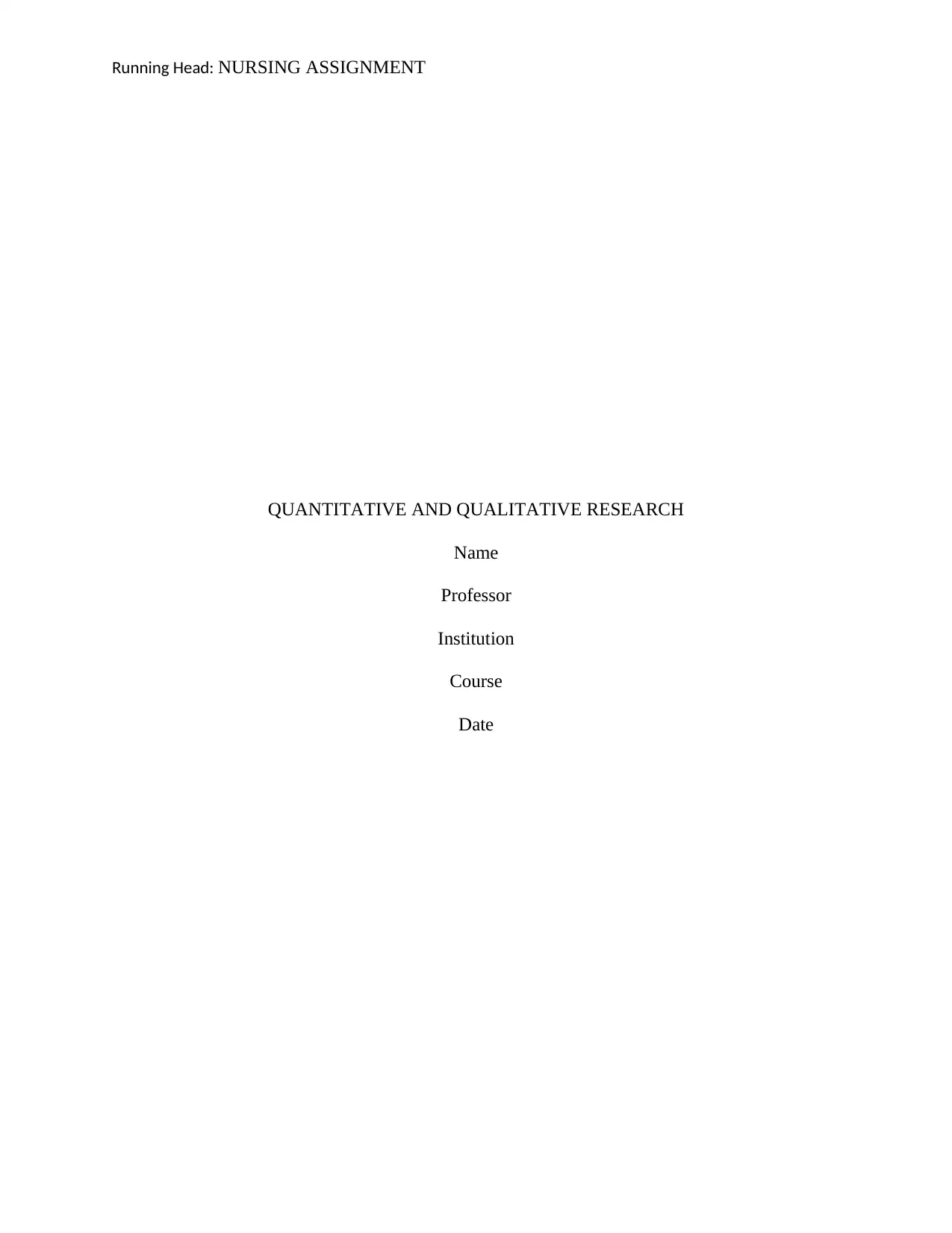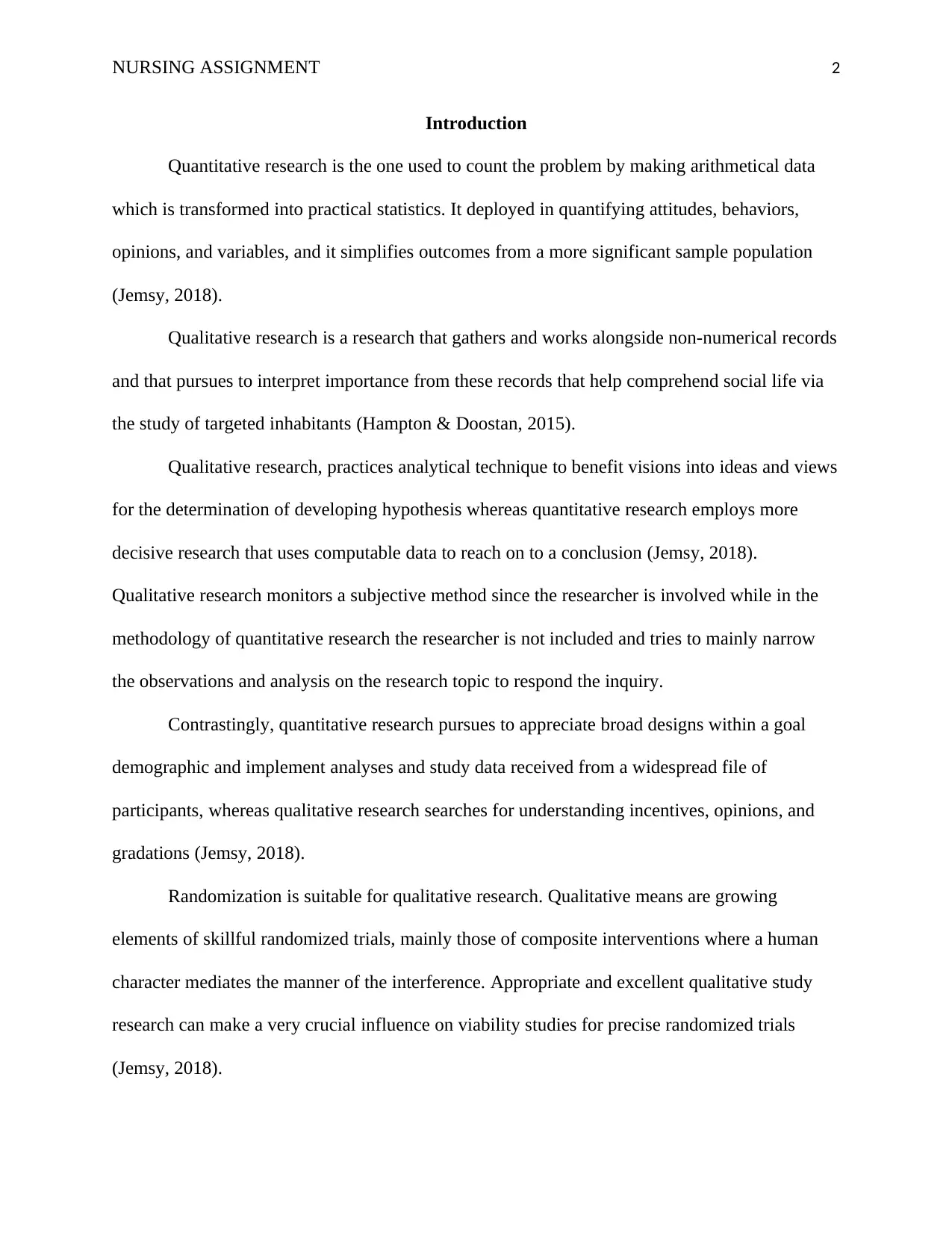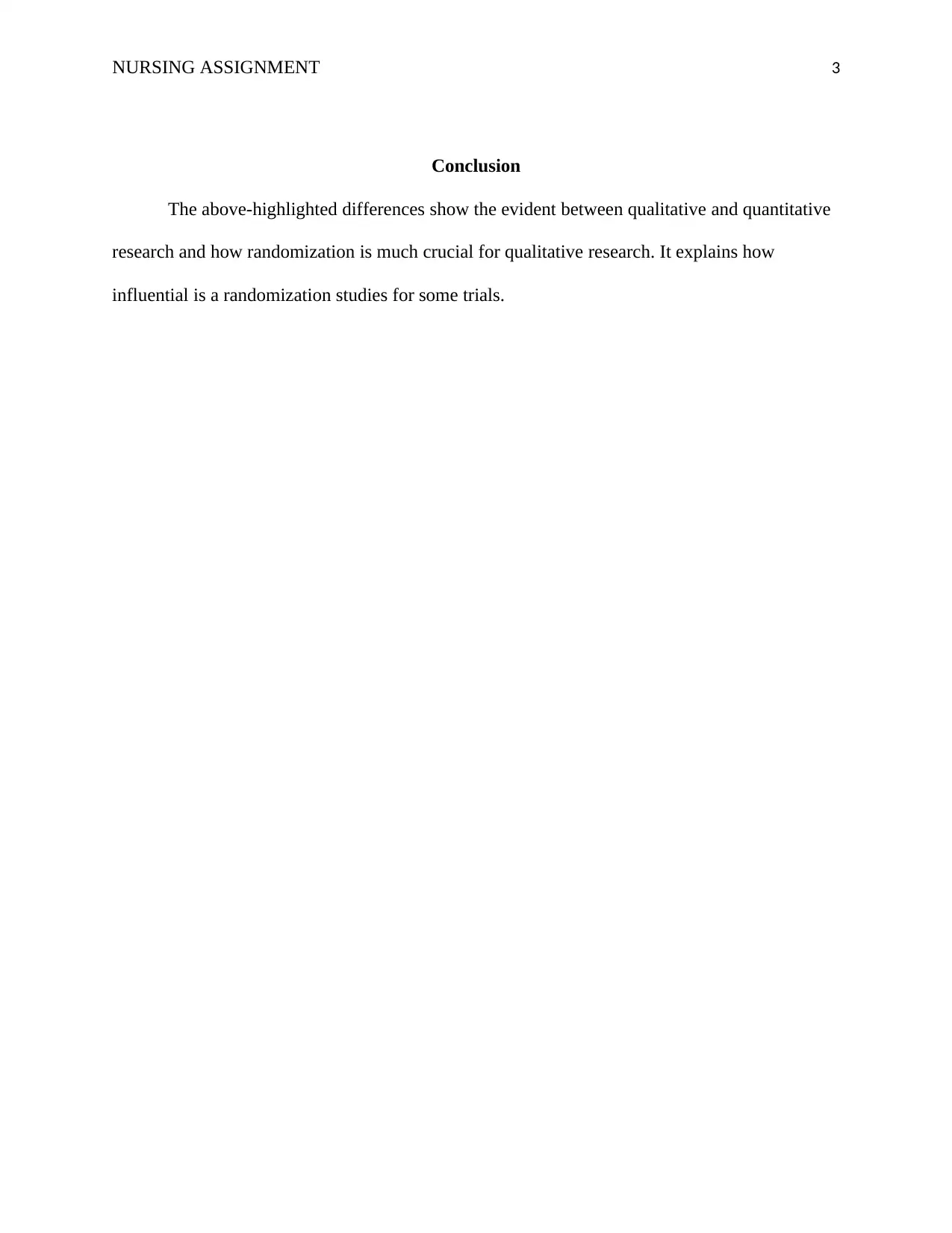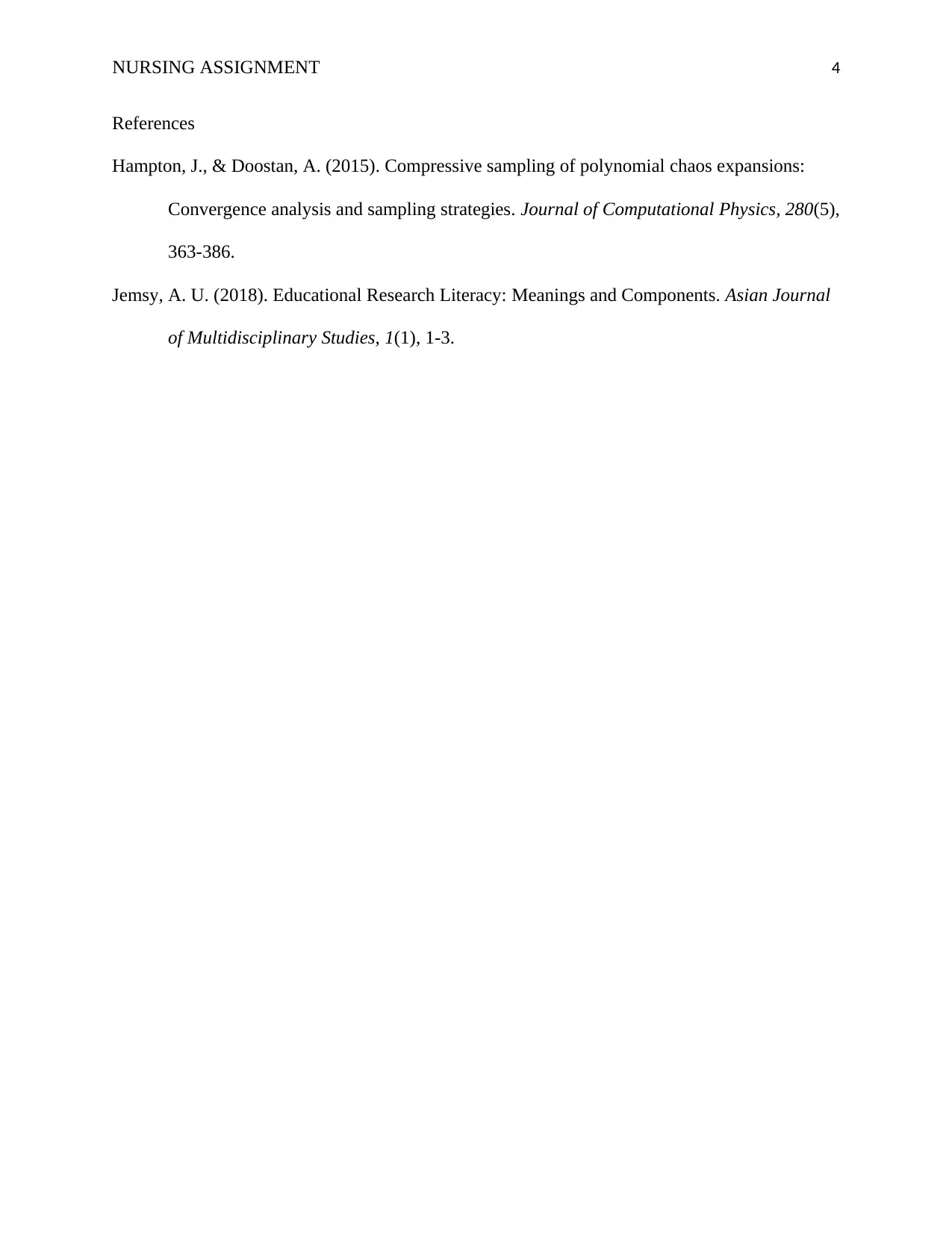Nursing Assignment: Quantitative and Qualitative Research Analysis
VerifiedAdded on 2022/10/10
|4
|397
|20
Report
AI Summary
This report provides an overview of quantitative and qualitative research methods, emphasizing their differences and applications within the field of nursing. It highlights the nature of quantitative research, focusing on numerical data, statistical analysis, and the goal of generalizing findings to a broader population. Conversely, the report describes qualitative research, which focuses on understanding experiences, perspectives, and meanings through non-numerical data such as interviews and observations. The report discusses the role of randomization in qualitative research, particularly in the context of clinical trials. It also presents the key differences between the two methodologies, including the role of the researcher, the type of data collected, and the approach to analysis. The report concludes by summarizing the importance of both quantitative and qualitative research approaches in advancing knowledge within the healthcare field.
1 out of 4











![[object Object]](/_next/static/media/star-bottom.7253800d.svg)